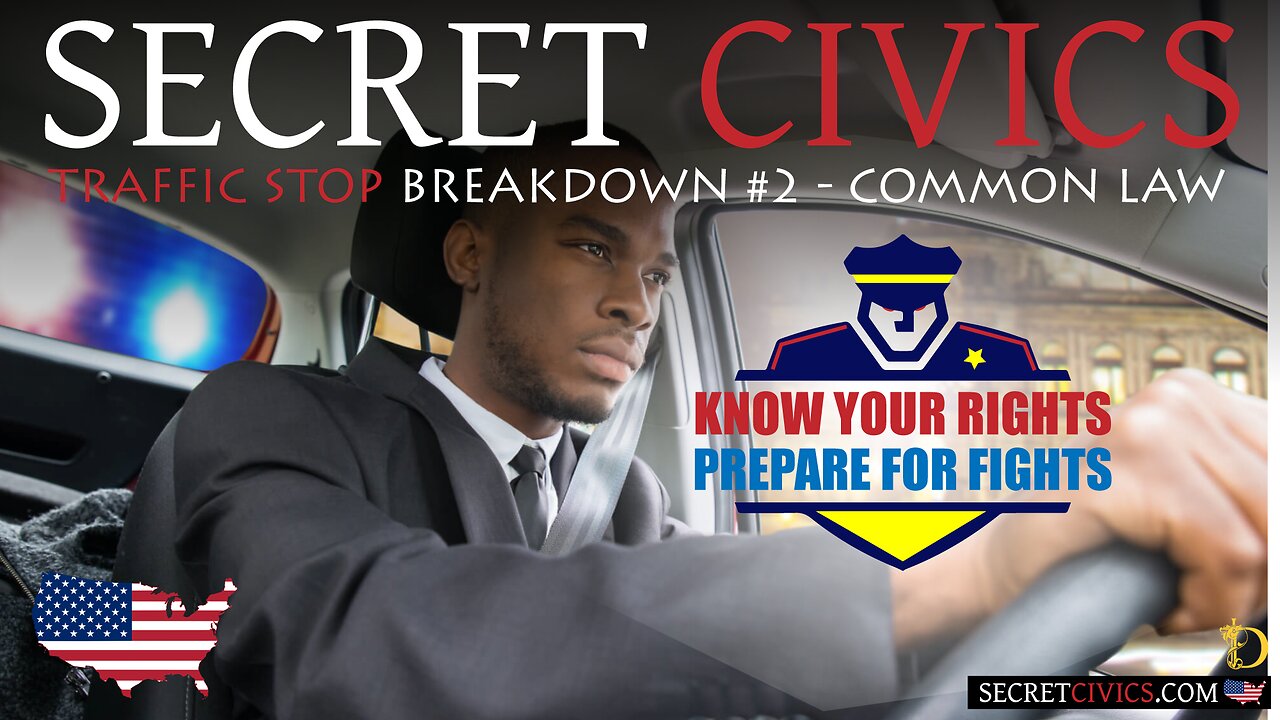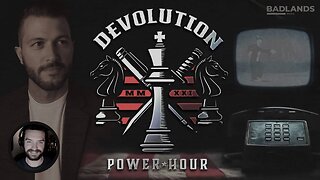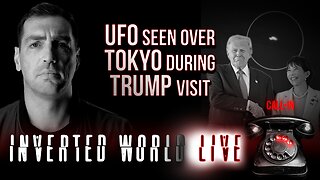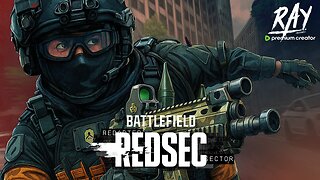Premium Only Content

SC - Traffic Stop Breakdown #2 (Longer Version)
A tacit agreement refers to an understanding or arrangement that is inferred from actions or circumstances rather than expressed explicitly in words. In the context of a traffic stop and interactions with law enforcement, it's crucial to be aware of how your words and behavior might unintentionally create such agreements.
Understanding the Context
When you're pulled over, knowing your rights and being careful with your language can help you avoid inadvertently entering into a tacit agreement that could be used against you. Here are some key points to keep in mind:
Right to Remain Silent: You have the right not to incriminate yourself. You can exercise this right by politely informing the officer that you choose to remain silent.
Non-Verbal Agreements: Actions and body language can sometimes be construed as consent or agreement. Be mindful of how you present yourself and follow legal guidelines without overstepping your rights.
Consent to Searches: Be cautious when agreeing to any searches. Verbally and clearly state that you do not consent to a search. This is important as consent to searches is one common area where tacit agreements happen.
Avoiding Incriminating Terminology
Here's a breakdown of phrases and actions to avoid, and what you can do instead:
Things to Avoid:
Admitting Fault: Avoid saying things like "I didn't realize I was speeding."
Implied Consent: Don't say "Sure, you can take a look" when asked for a search.
Incriminating Responses: Phrases like "I only had one drink" are better left unsaid.
Preferred Responses:
Exercise Your Rights: "Officer, I choose to remain silent."
Refuse Searches Politely: "I do not consent to a search."
Request Legal Representation: "I would like to speak to an attorney."
Key Legal Points to Remember:
Ask If You're Free to Leave: "Officer, am I being detained or am I free to go?" This can help clarify if you are under any obligation to stay.
Record the Encounter: If legally permissible in your jurisdiction, recording the interaction can provide an accurate record of what transpired.
Practical Example:
Incorrect Approach:
Officer: "Do you know why I pulled you over?"
You: "I guess I was speeding a little."
Correct Approach:
Officer: "Do you know why I pulled you over?"
You: "No, officer."
By choosing the correct approach, you avoid self-incrimination and the possibility of entering into a tacit agreement.
Broader Implications of Tacit Agreements
In some discussions about law enforcement and corporate governance, there's an argument that individuals may unwittingly agree to certain terms and conditions by their actions, without explicit consent. This is often cited in the context of traffic stops, where corporatization concepts are raised.
By being informed and mindful of your rights and how you communicate, you can better navigate interactions and protect yourself from unintentional agreements.
-
 LIVE
LIVE
Badlands Media
5 hours agoDevolution Power Hour Ep. 402
11,726 watching -
 LIVE
LIVE
Inverted World Live
4 hours agoUFO Seen Over Tokyo During Trump Visit | Ep. 132
3,711 watching -
 LIVE
LIVE
TimcastIRL
2 hours agoDemocrat FEDERALLY INDICTED For Obstructing ICE Agents In Chicago | Timcast IRL
7,356 watching -
 LIVE
LIVE
SpartakusLIVE
4 hours agoNEW - REDSEC Battle Royale || The Duke of Nuke CONQUERS ALL
213 watching -
 LIVE
LIVE
PandaSub2000
1 day agoLIVE 10:30pm ET | NINTENDO DS Night
86 watching -
 LIVE
LIVE
Alex Zedra
1 hour agoLIVE! Battlefield RecSec
244 watching -
 1:26:50
1:26:50
The Quartering
3 hours agoErika Kirk Threatened, SNAP Riots Near, & New AstroTurfed Woke Lib Influencer
19.6K10 -
 29:24
29:24
Glenn Greenwald
4 hours agoSen. Rand Paul on Venezuela Regime Change, the New War on Drugs, MAGA Rifts, and Attacks from Trump | SYSTEM UPDATE #539
89.6K76 -
 LIVE
LIVE
Badlands Media
16 hours agoAltered State S4 Ep. 3
1,697 watching -
 LIVE
LIVE
This is the Ray Gaming
50 minutes agoRedacted Sector Day 2 | Rumble Premium Creator
48 watching